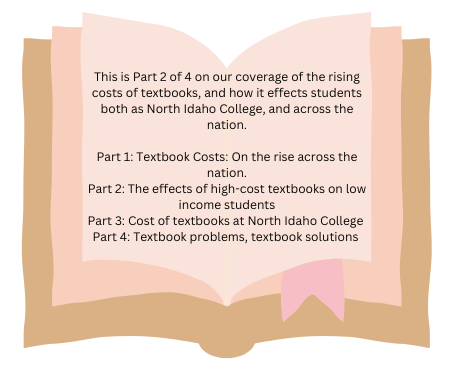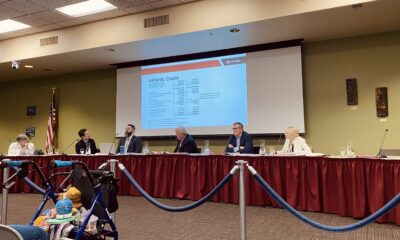It should come as no surprise to anyone that textbook costs are higher now, then when your parents went to school. While inflation accounts for some of this extra cost, it cannot be understated that most of it has to do with pure greed, and ridiculous internal policies of the company/companies which manufacture and distribute the textbooks. What makes this an especially grievous offense to students (particularly those who are the sons and daughters (or they themselves) of low-income parents) is the rise in ebooks and the promise they once held.
It wasn’t long ago that the promise of digital books (including e-textbooks) held strong in people’s eyes. Perhaps it still does, yet facts are pesky things. Despite there no longer being a “material overhead” cost (which essentially just means the cost of the paper, ink, printing process, and distribution – which are all fair reasons for the printed book price), many publishers and digital retailers have chosen to charge at or near the same price that the physical book would cost. The digital book costs nearly nothing to host, and yet costs roughly the same as the print book.
What’s worse, is that with a digital book, you do not actually own that book. Without going into complex legal jargon, when you “buy” a digital work (be it an ebook, movie, episode, piece of software, video game, adult video, etc.), you do not actually own that work, you are merely buying a temporary license to view that work. That access can be revoked at anytime. That license lasts for however long the stated contract is within the TOS, or can end without prior notice (such as Amazon pulling copies of “1984” off of Kindles).
Digital textbooks are one thing. They are oftentimes not required, which tends to help students in the long run. NIC’s bookstore offers a buyback program for all physical books, yet this is not the case for digital books. The reasoning for this is simple common sense. You agreed to a TOS that states that your access to said book can, and will be revoked upon request of either provider, service, or publisher (sometimes even by author). Why would a digital buyback program ever be necessary in the first place?
Some students (due to financial restrictions) are unable to afford either the digital textbooks, or the physical textbooks. This has been shown to negatively impact a student’s grade. 5.2 million (undergraduate) students spend an estimated $1,500,000,000 on textbooks every semester across the nation according to a 2016 study.
The cost of textbooks also extracts another toll on low-income students: necessities. Those of us privileged enough to live at home and not have to worry about the cost of textbooks (as our scholarships and grants tend to cover these costs – and then some) are very fortunate. Many students who are within the low-income bracket oftentimes have to choose between buying the material that their professors are requiring for the class, or pay for lunch.
Multiple studies have been done, that find that nearly two-thirds of students simply do not purchase the required textbook/s because of the cost. In fact, the same study finds that many choose to take a lighter load, as this helps them avoid a higher per semester cost. This forces many into a difficult decision. Do they take out student loans, which further increases their debt they now owe to pay for an education which is supposed to land them a job that holds them ransom so they are able to pay back that debt they borrowed to get the job in the first place, or do they simply skip the full-time status, and stick to just a couple of classes per semester, which then extends out their expected graduation date from 2 years to a minimum of 4? It certainly is a sticky situation, but one that can be solved by instructors changing how they request texts for use within the class (this will be looked at in part 4).















